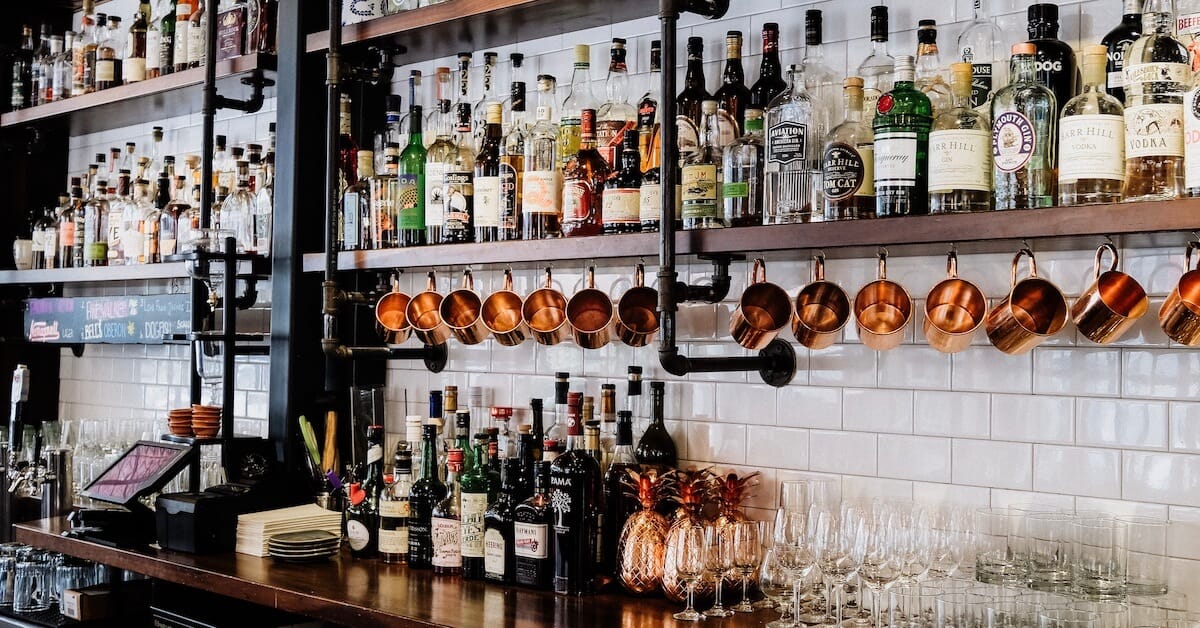Covid-19 Special NRS Pay Point of Sale Pricing: $699 (REG. $1299)
Covid-19 Special NRS Pay Point of Sale Pricing: $699 (REG. $1299)

A liquor license permits your company or restaurant to provide alcohol in its establishment. Depending on the state in which your restaurant is located, the license comes with distinct specific regulations. Having a liquor license may save a business owner a lot of time and money compared to having the patrol how many drinks a client has. As a result, obtaining them is prohibitively expensive. A liquor license may assist staff and customers in understanding how alcohol is served in the restaurant and what laws both parties must follow to keep things operating smoothly.
Many restaurant owners believe that the return on investment from a high-priced alcohol license is well worth the money, and they consider themselves fortunate to have gotten one. A restaurant owner who is allowed to offer alcohol at their establishment is way ahead of the competition. When properly managed, liquor sales in restaurants may be a goldmine.
Offering alcohol at your restaurant is also beneficial for customers, especially since most prefer to go to a restaurant to get alcohol rather than bring their own. It’s also easier to manage as a restaurant owner whether or not your customers are drinking. There might be serious fines, and the restaurant could be shut down if a customer brings their own drink in without authorization or because you do not have a license. That is why having a license is crucial, as are having established standards for how many drinks may be offered to a customer and how the restaurant can regulate how much alcohol to put in cocktails.
Another benefit of getting a license for restaurant owners is that they may hire bartenders to create custom drinks. As a restaurant owner, you can request that the bartenders create a cocktail exclusive to your establishment. After that, place the drink under the menu’s “Signature Drink” heading. Customers will be enticed to sample your unique cocktail, and if it impresses them, you may become the talk of the town.
In addition, you can also create dessert drinks to persuade customers to stay longer at your restaurant, leading to more sales. So raise a glass to a liquor license and your restaurant’s increased profits!
Liquor licenses are in short supply and in high demand, making them a luxury item in the restaurant business. Most municipalities are afraid that allowing too many licenses will allow for excessive liquor-serving establishments, including bars and nightclubs. Since there is so much competition, the number of licenses available to restaurants is limited, causing restaurant owners to be disappointed when they cannot obtain one and are losing revenue. According to the stats, prices vary depending on the state and may range from $12,000 to $400,000. Some restaurateurs consider purchasing an existing business with a license and obtaining the alcohol permit as part of the transaction. After evaluating the steps involved and regulations required to acquire a license, let alone the luck of being awarded approval, a restaurant owner may consider this as the best course of action. This is especially true in states like New Jersey that limit alcohol permits based on population.
The cost of obtaining a license may even cause a restaurant owner to take out a cash advance. Leading point of sale service (POS) providers like National Retail Solutions (NRS) offer cash advances, which are very beneficial compared to traditional bank loans. NRS, the leading provider nationwide of Point of Sale (POS) systems to various small to mid-sized, independently owned businesses, including restaurants, offers NRS Funding. NRS cash advances feature easy applications that forego the fine print and complex language of bank loans. The approval process takes days, not weeks, and includes lower interest rates. It’s also a much better process than borrowing money from friends and family, which can lead to friction and broken friendships in the long run.
The regulations that go into acquiring an alcohol permit vary by state. According to Ontheline.com, To regulate the sale of alcohol, each state has its own Alcohol Beverage Control (ABC) organization. Contact your local ABC agency to learn more about your state’s regulations and the process of obtaining a liquor license in your state. That puts restaurants at a disadvantage if people want to stop for a quick beer before a game or concert. Many states also require that applicants have no felony convictions before applying. In contrast, others won’t allow law enforcement officers to hold alcohol permits due to conflicts of interest with their jobs.
If you want to renew your license, you must reapply every one to two years. According to TalusPay.com, “You should renew your license as early as possible. Some states have the application online while others are in-person. This will keep you from paying penalty fees for operating without a license, but on the plus side, your renewing fee will be much less than your first-time license fee.” Renewing a license, just like obtaining one, can appear like a never-ending set of hoops to jump through.
But hang in there! The expenses of obtaining an alcohol license are well worth the effort and money. The benefits of offering alcohol at your business, including increased income, will greatly exceed any disadvantages.
